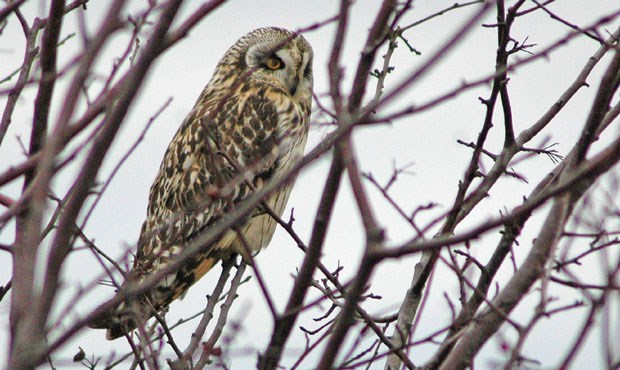Delta will come up with new strategy to support one of the most diverse populations of bird species in all of Canada.
Delta council approved a staff recommendation Monday to develop a Delta Bird and Biodiversity Strategy in conjunction with the Delta Naturalists Society and other partners.
Last fall, members of the naturalists made a presentation at a council workshop pitching the idea of a strategy, noting Delta’s Fraser River estuary and Burns Bog have global significance.
The purpose of the strategy, they explained, is to “identify, protect and enhance biodiversity in Delta to ensure that necessary conditions exist for thriving and diverse native wildlife, with a particular emphasis on birds.”
The naturalists explained the strategy would catalogue and protect bird habitats with high biodiversity, enhance existing habitat and identify habitat creation opportunities, as well as enhance awareness of Delta’s birds and biodiversity through outreach and communications initiatives. The goal is to also reduce urban and rural threats and promote bird-related tourism.
Delta will also help distribute and display a pair of birding brochures created by the society and will participate in the 2018 International Ornithological Congress in Vancouver, facilitating birding tours within Delta.
Delta Farmland and Wildlife Trust program coordinator Christine Terpsma told the Optimist that while the trust has not formally contributed to the idea of strategy, so far, it looks forward to providing input to assist in its development.
“Many of the goals outlined in the memo prepared for council align closely with the mandate of our organization, as our stewardship programs contribute to the enhancement of farmland habitats for conservation objectives,” she said.
The City of Vancouver produced its own “bird strategy” last year aimed at improving the city’s habitat conditions for birds, while capitalizing on tourism and economic benefits they can generate. Among other things, it encourages developers to voluntarily use building and landscape designs aimed at reducing accidental collisions.
According to the strategy, “by 2020 Vancouver will be a world leader in supporting a rich and diverse group of native birds year-round…”
The City of Richmond came up with something similar in the form of the Richmond Ecological Network Management Strategy, while the City of Surrey developed a Biodiversity Conservation Strategy.



